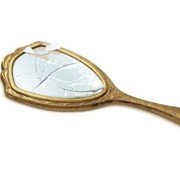Treatment
Treatment reduces OCD thoughts and behaviors. But treatment does not completely eliminate them. Most commonly, treatment is a combination of medication and cognitive behavioral therapy.
Treatments include:
Medications
Selective serotonin reuptake inhibitors (SSRIs) reduce OCD symptoms by affecting the neurotransmitter serotonin. This function is independent of their antidepressant effects. SSRIs include:
***Please note FDA Public Health Advisory for Antidepressants:
The FDA advises that people taking antidepressants should be closely observed. For some, the medications have been linked to worsening symptoms and suicidal thoughts. These adverse effects are most common in young adults. The effects tend to occur at the beginning of treatment or when there is an increase or decrease in the dose. Although the warning is for all antidepressants, of most concern are the SSRI class such as:
- Prozac ( fluoxetine ), Zoloft ( sertraline ), Paxil ( paroxetine ), Luvox ( fluvoxamine ), Celexa ( citalopram ), Lexapro( escitalopram )
Other medications used include clomipramine (Anafranil) and clonazepam (Klonopin) . Clomipramine is a tricyclic antidepressant drug that alters serotonin levels. Clonzepam is a benzodiazepine that relieves anxiety.
Therapy
Behavioral therapy addresses the actions associated with OCD; cognitive behavioral therapy (CBT) addresses both the thought processes and the actions associated with OCD.
Examples of therapies used to treat OCD include:
-
Exposure and response prevention—helps you gradually confront the feared object or obsession without giving in to the compulsive ritual linked to it
- In patients who are also taking SSRIs, this form of therapy may be more effective than stress management training. *¹
- Aversion therapy—use of painful stimulus to prevent OCD behavior
- Thought switching—patient learns to replace negative thoughts with positive thoughts
- Flooding—intense exposure to object that causes OCD behavior
- Implosion therapy—repeated exposure to object that causes fear
- Thought stopping—patient learns to stop negative thoughts
Future Treatment
An implantable brain device has received limited FDA approval to treat severe cases of OCD. Often called a brain pacemaker, the device delivers mild electrical impulses to the brain to interrupt OCD symptoms.
Please be aware that this information is provided to supplement the care provided by your physician. It is neither intended nor implied to be a substitute for professional medical advice. CALL YOUR HEALTHCARE PROVIDER IMMEDIATELY IF YOU THINK YOU MAY HAVE A MEDICAL EMERGENCY. Always seek the advice of your physician or other qualified health provider prior to starting any new treatment or with any questions you may have regarding a medical condition. Copyright © 2024 EBSCO Publishing All rights reserved.
 Body Dysmorphic Disorder and Suicide
Body Dysmorphic Disorder and Suicide







